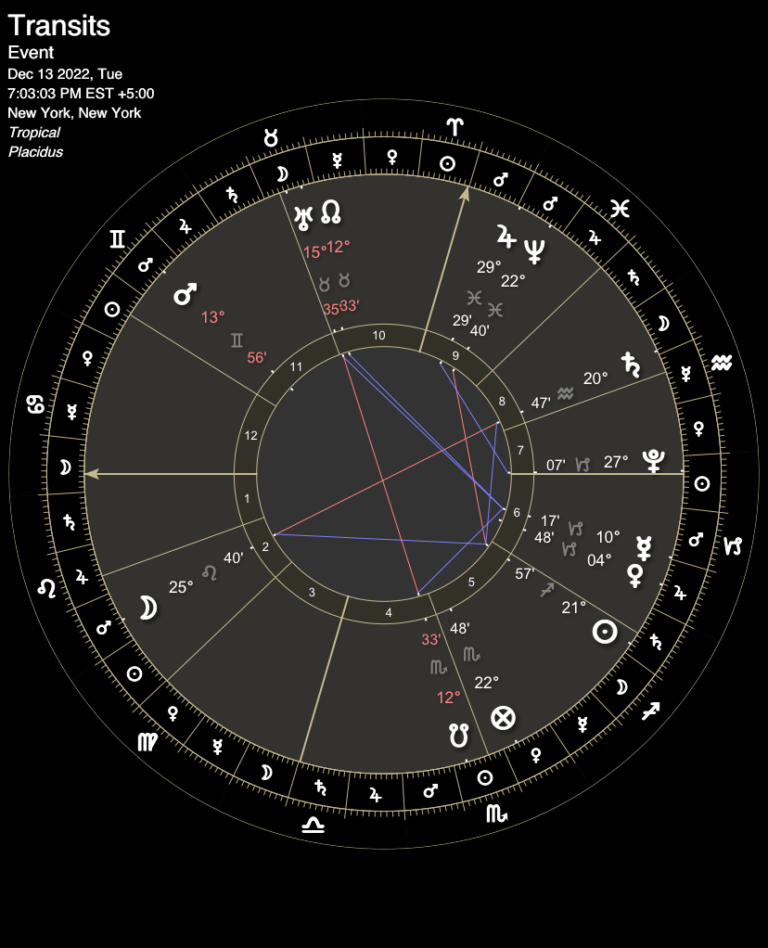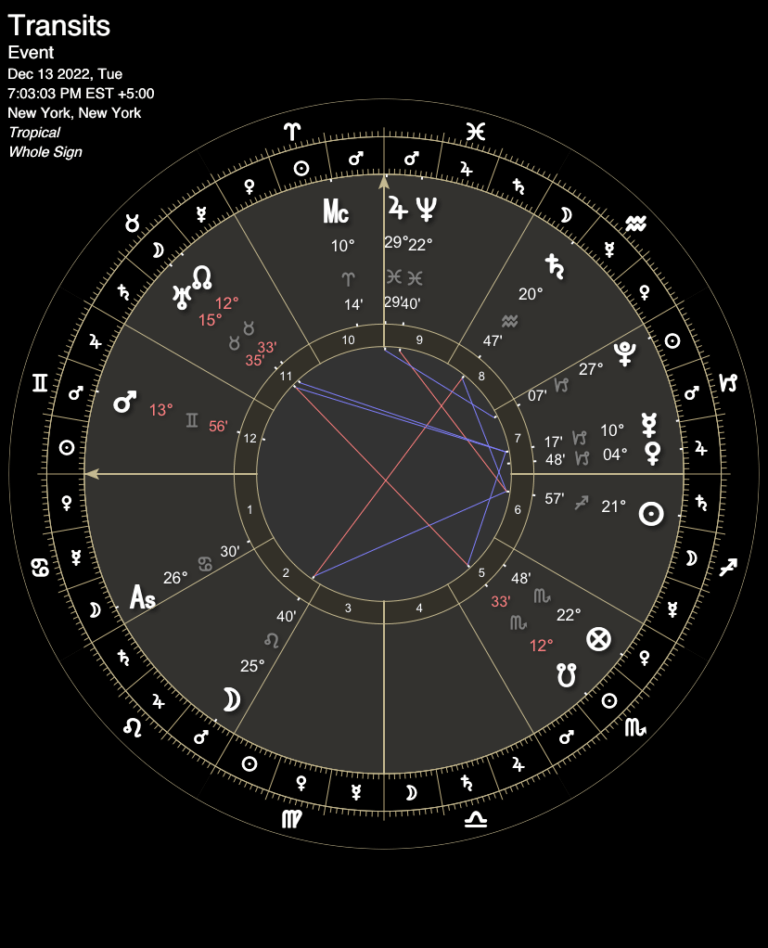Intro: Houses in Astrology | Astrology Basics
What are the houses?
In astrology, we often say “as above, so below.” When we refer to this, we mean that there is a reflection happening between the stars and life here on Earth. But if the Zodiac are the fixed stars and the planets are the planets, then what represents Earth? That’s the houses in astrology.
The houses tell us what areas of life are being affected by the transits. They can represent anything from us, to other people, to the things we interact with both literally and also metaphorically. While there’s definite ways to read someone’s chart without them, houses in astrology are essential for getting the most accurate readings.
What are the house division systems?
The houses in astrology are 12 divisions of a three dimensional space. Throughout the millennia, many astrologers have tried to reason about different conceptual ways of dividing them. This is a long, complex story to get into, and the math is hard to understand. Thankfully, The Astrology Podcast has an episode to explain house division calculations with visuals to how it works! Check it out if you want to know the whole story.
The purpose of these division systems are to make sense of the way we take a three dimensional space and project it onto a chart. There are many systems out there depending on what tradition you practice. Most of these houses in astrology are dependent on an accurate birth time.
How to chose your house system
When choosing what houses in astrology you use, it’s important to understand what your goals are. One very important thing to keep in mind is birth time. If you aren’t exactly sure what time you were born, some house systems will not be as accurate. Additionally, the goals you have for the chart can determine what house system you chose.
For the purpose of this blog post I will be covering two popular systems used in the USA for natal astrology. This is where I’m from, so it’s what I know, but depending on where in the world you are could determine the prevalence of different house systems. For houses in astrology, I will be talking about Placidus and Whole Sign Houses.
Placidus
This is the most common form of house division as of the date of this blog! On any site, app, or general astrology service you use, chances are, it will default to Placidus. This form of house division divides the chart starting from the exact degree of the Ascendant to determine the cusp (beginning) of the first house. Then, it uses the MC to determine the cusp of the tenth house. The Descendant degree divides the cusp of the seventh house, and the IC divides the cusp of the fourth house. The other houses are then determined based on additional calculations. This means that house cusps fall on specific degrees that can tell you a lot about that person’s chart.
(In the future, I will be posting a blog post on the vocabulary behind the houses in astrology. So sign up for my mailing list to get notified when that goes up!)
If you are interested in Degree Theory, psychological astrology, and other popular practices, Placidus may be a good fit for you! There are many astrologers versed in this form of house division that you could learn from or book sessions with. Most astrology resources use Placidus to determine houses in astrology. So there will always be learning available.
The downside to Placidus for houses in astrology, is that it’s heavily dependent on an exact birth time. While it is true that all house systems require close accuracy, Placidus is even more sensitive to minute changes. If you have a rounded birth time (usually a time that ends with a 5 or a 0) then you should keep this in mind when you use Placidus. For every degree that changes, the cusp of the houses can change. And the Ascendant degree can change by the minute in some cases.

Chart from Astro Gold App
Whole Sign Houses
With the Hellenistic revival of the 1990s and 2000s thanks to Project Hindsight, Whole Sign Houses have come into the spotlight. According to ancient texts, this was the oldest form of house division. Whereas quadrant house systems, like Placidus, can have multiple signs in one house, Whole Sign uses a one-to-one system. Chris Brennan, one of the leading astrologers who teaches on this system, outlines that whatever sign the Ascendant degree falls into becomes the first house. The next sign then follows as the second house, and so on in this one-to-one framing.(1)
For houses in astrology, the Whole Sign system has a lot of pros. It’s compatible with most timing techniques, is more functional to regions of the globe where the MC can fall in the twelfth or eighth house, and is generally very detailed for beginners and seasoned astrologers alike. If you’re someone who’s birth time is rounded and you are unsure of your exact time of birth, Whole Sign Houses provides a partial solution as house division is not distorted as long as the Ascendant sign is correct.
The cons of Whole Sign Houses is widely technique based. Some techniques, such as Degree Theory, rely heavily on knowing the exact degree of the cusp for each house. Other points such as Decans, Bounds, culminating planets, and more can also give some astrologers insight on the nature of the houses depending on cusp degree. Additionally, if you have a very vague time of birth or are unsure entirely, this house system will not be reliable, either.

Chart from Astro Gold App
Do I have to use a house system?
The answer: No! You do not have to use a house system in astrology. The planets, aspects, and signs can still tell you a lot about any chart you look at. So if you don’t know your exact birth time, a date is still workable.
However, without houses in astrology, it may be difficult to get the whole picture. Some techniques require accurate house division. Also, there are branches of astrology and different traditions that use specific house systems. Examples of these are electional, horary, and Indian astrology.
So you do not have to use houses in astrology, but they certainly make a difference to provide rich context for any chart. It’s a generally good idea to try out multiple systems before deciding on one specifically. Many astrologers even have a secondary system they use in combination as a way to improve their delineations.
Conclusion
Houses in astrology are considered to be one of the most informative and important points in a chart. They show us what areas of life the transits affect. Choosing your house system widely depends on what your goals are. In your studies, it’s a good idea to try out different systems and learn more about what each one can do or not before settling. Even when you do decide on what house system you use, you can always switch!
Each of the houses in astrology covers a different area of life in the chart based on archetype and a range of other factors. It gets pretty complex and the nuances are deep. Over the next few months I will be collaborating with other astrologers to provide in depth analyses of each of the twelve houses.
If you’re interested in learning more about houses in astrology, subscribe to my newsletter for updates!

(1) The Astrology Podcast, The Whole Sign House System